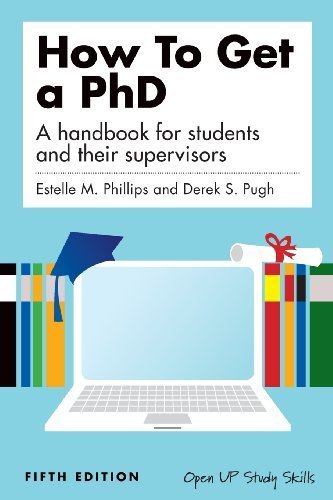What do you think?
Rate this book


Unknown Binding
First published October 1, 1987
some social science students who have read Kuhn’s work on ‘paradigm shifts’ in the history of natural science (science students have normally not heard of him) say rather indignantly: ‘Oh, do you mean a PhD has to be just doing normal science?’ And indeed we do mean that... It is the basic useful activity of scientists and scholars, and PhD students should be pleased to make a contribution to it. You can leave the paradigm shifts for after your PhD...
It is only by understanding the need for precision and having the ability to apply yourself in a disciplined way that you will eventually get to the point where you have the right to follow up interesting leads and explore a series of ideas that arise out of the work in hand. We suggest that, for the moment, this should be after your doctorate.